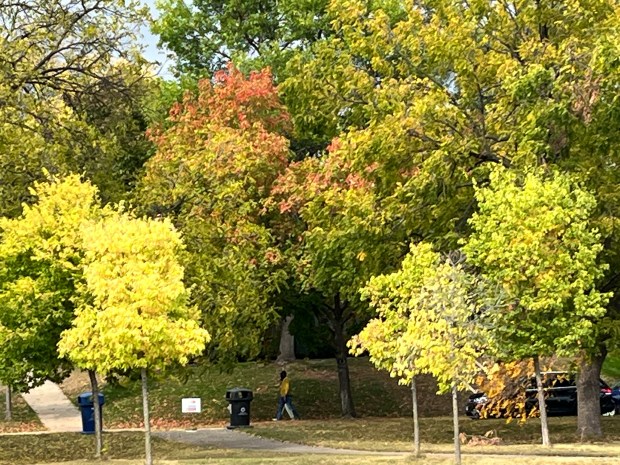
Minnesota usually looks something like this in winter. Not this winter. It didn’t get cold, it didn’t snow. Not to speak of, anyway. The year we didn’t have winter followed the year we had the most snow ever. We are living on a merry-go-round. What is next?
I learned the other day that the Andrews Sisters were from Minnesota. One of their biggest hits was Boogie Woogie Bugle Boy during World War II. They were child performers and won their first talent contest when the youngest was 12. The only Minnesotan who has outsold them was Prince.
Just a little tidbit to file away in your trivia drawer.
I put a slide show on my screen saver for my Apple TV that shows pictures of my recent trip to South America. It really seems kind of unreal. Was I really there? Did I really go to Easter Island? It is all kind of dreamlike. It is weird how you can have all these memories of traveling to places all over the world and be sitting in a room in front of a computer thinking about taking out the garbage and going grocery shopping and putting gas in the car. All my life I have dreamed about going to places and seeing things I have read about or studied. For example, I was always fascinated with ancient history and Egypt in particular. It was a place I knew a lot about and when I finally went there, it all came back to me. All those things I had learned all those many years ago. It was so magical. And it was just a blip. I was there and then I was back, going to work, doing laundry, cooking. Planning the next trip. When you grow up living and traveling around the world it is hard to stop, to stay in one place.
I was thinking again about my recent trip and one thing I realized was that growing up all over the world created an environment for me to experience all kinds of spontaneous cultural interactions. For example this tour had organized several “events” for the group to interact with local people in their homes. Living overseas, of course I had lots of “local” friends and often went to people’s homes. But beyond that, I traveled around the countryside and stumbled through villages and met people who invited me into their homes. A few of my friends and I would go hiking in Nigeria and end up sitting in a mud hut drinking palm wine, or on somebody’s porch eating fish stew. I never thought anything of it at the time. They were just things that happened. This recent trip made me realize how unique that was. How most people don’t have those kinds of opportunities. I just took them for granted. Silly me.
Excerpt from my book, Expat Alien: On one of our outings in Nigeria, at the end of the day, we stopped in a small village for some refreshment. There was no restaurant or store but, after having asked around, we found a house where the people were willing to sell us some beer. We sat on their porch and drank beer and the entire village came out to watch us. We bought the grandfather of the house a special drink (ogogoro – gin distilled from palm wine) from somebody down the street and we found one young boy who spoke some English to be our translator. Pretty soon the family brought out dinner for us to share (fish curry and yam paste). Francis looked like he would be sick if he had to eat any of it. I tried some of the yam paste but left the very hot curry to the others. Everybody was getting quite drunk.
.









































